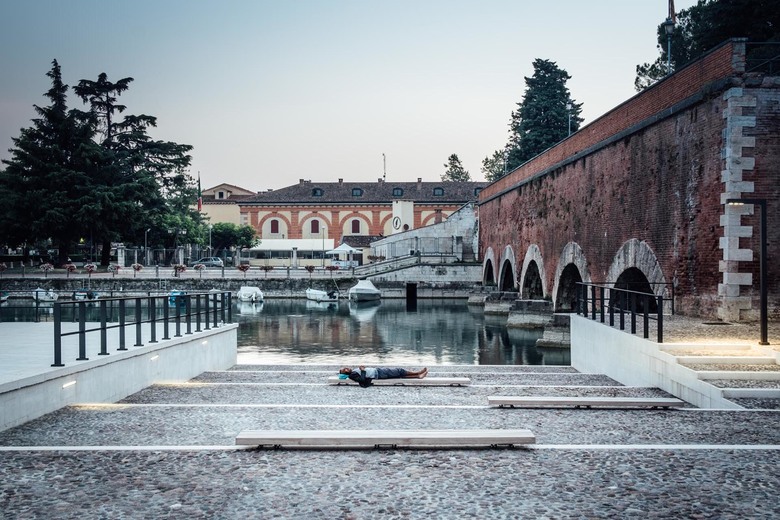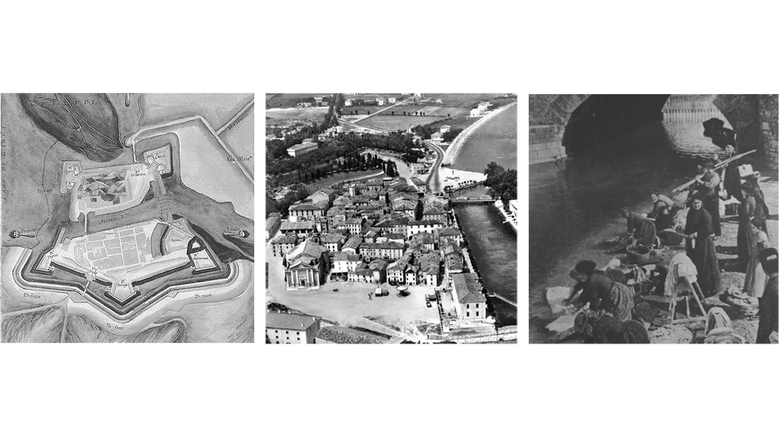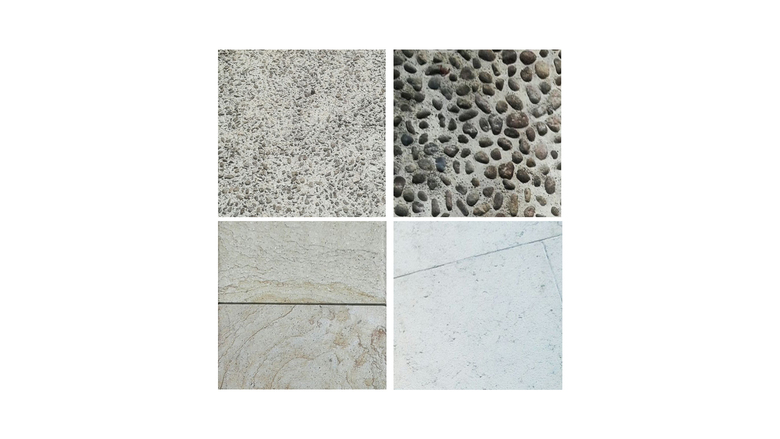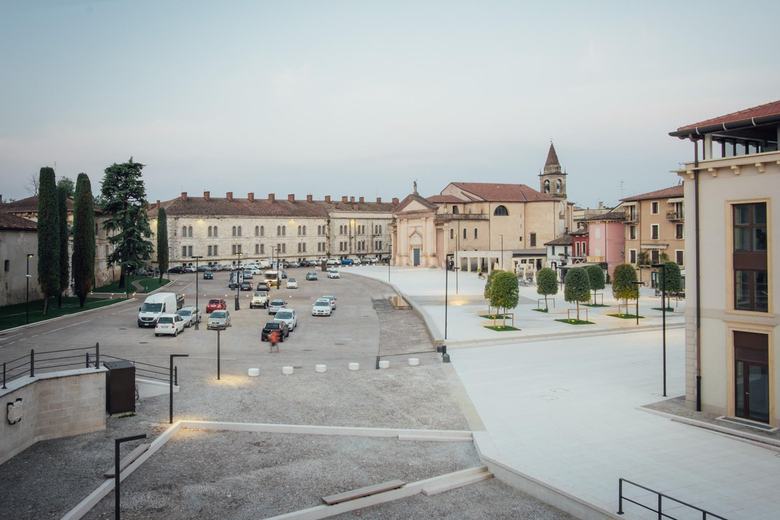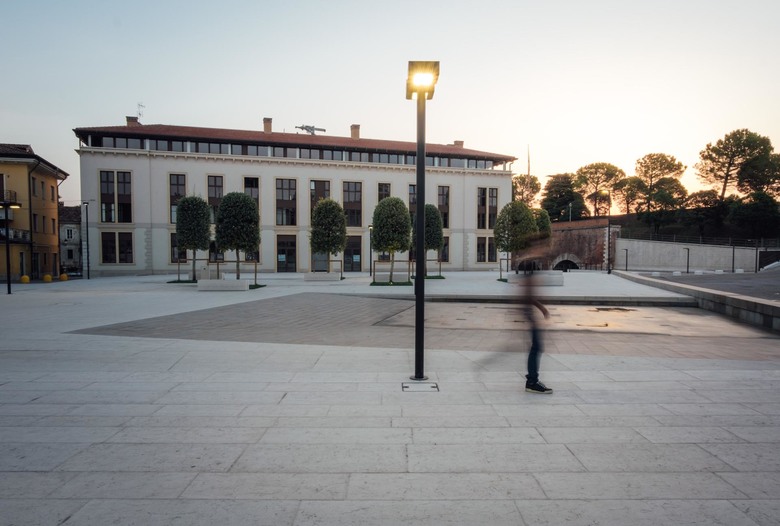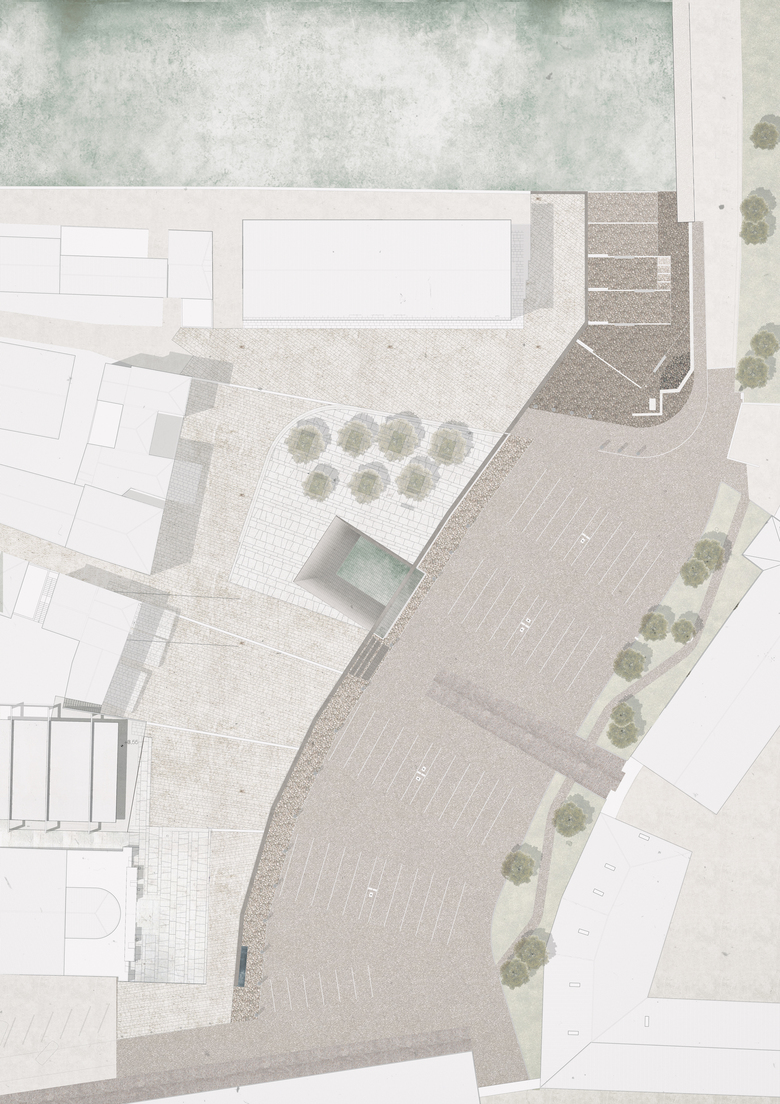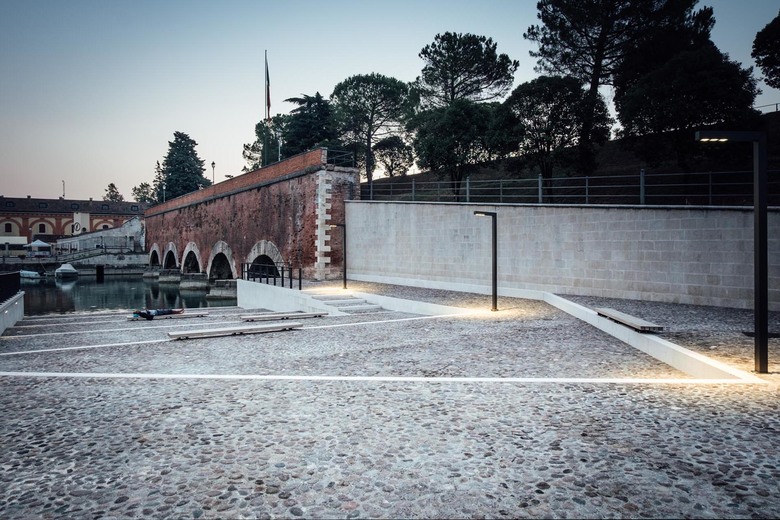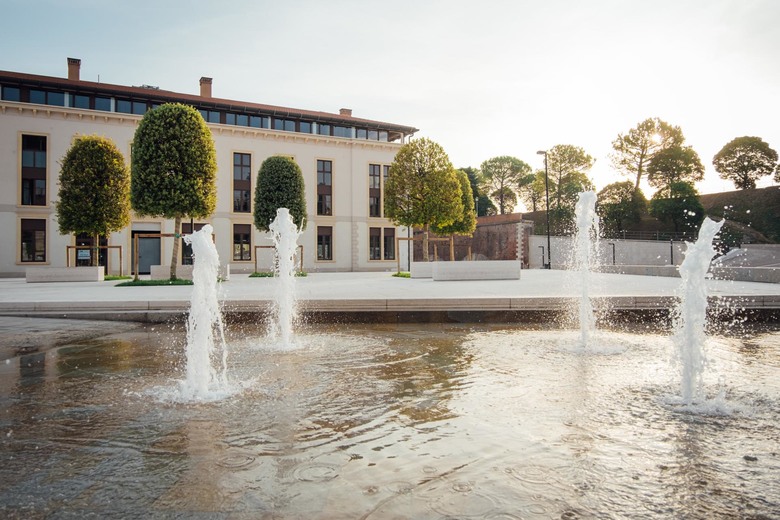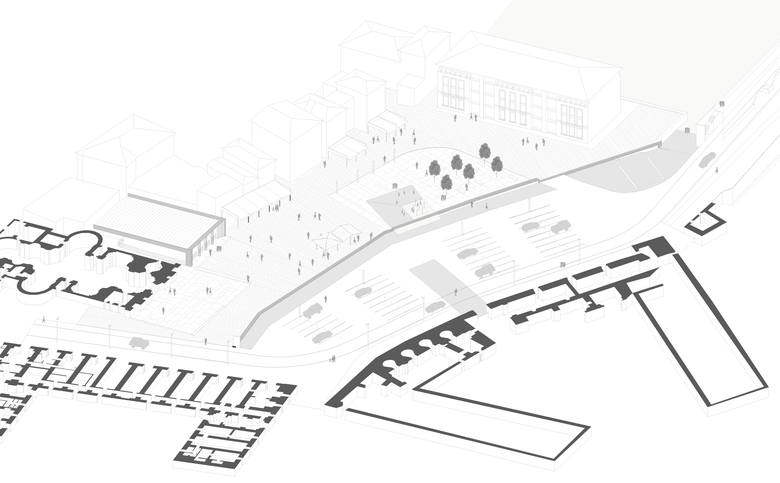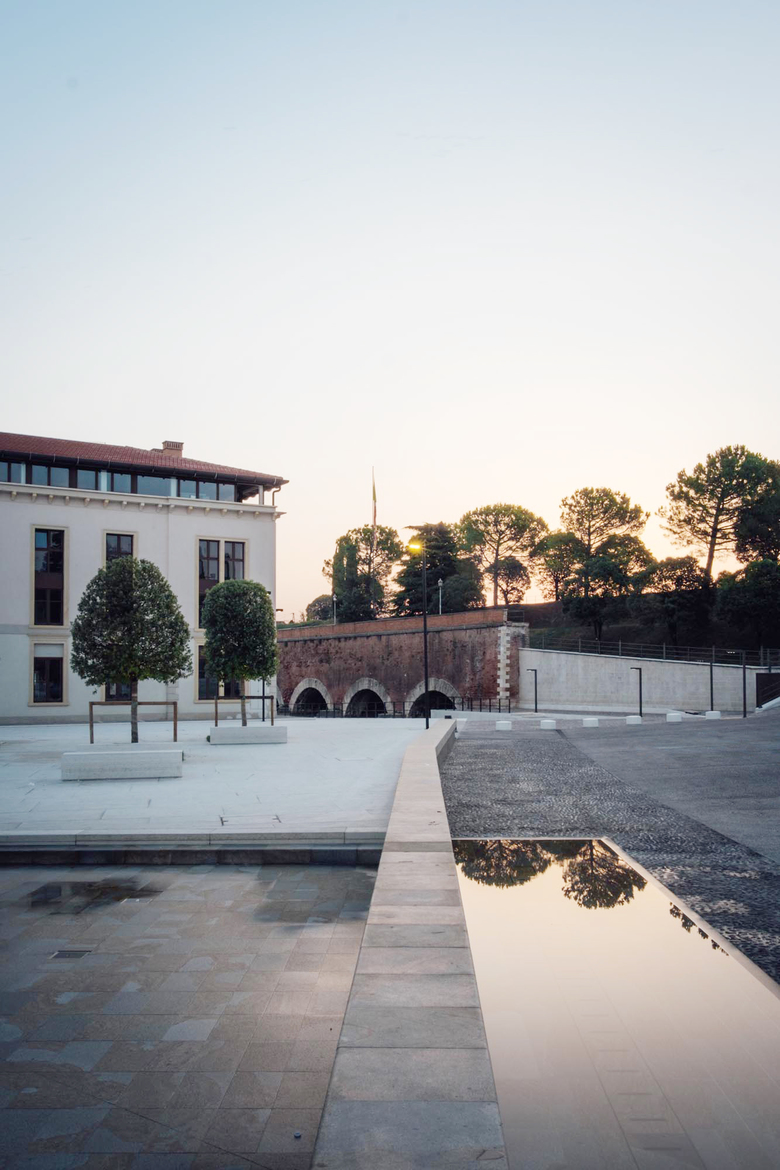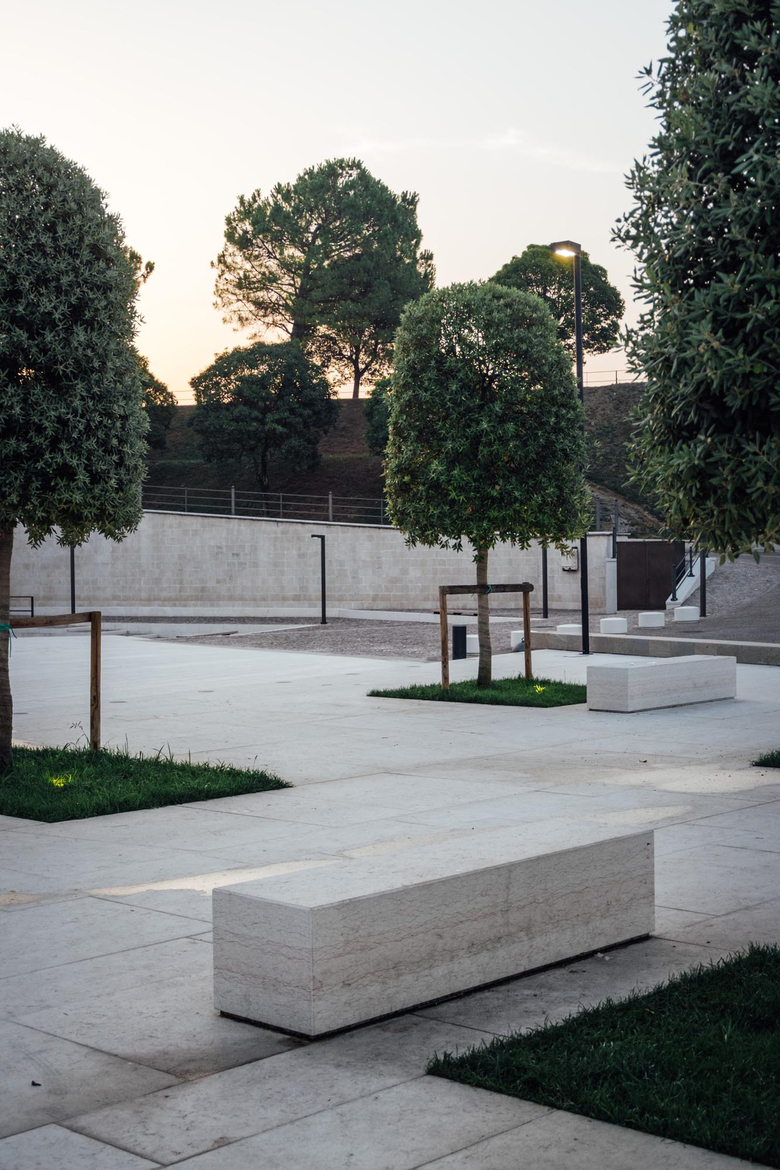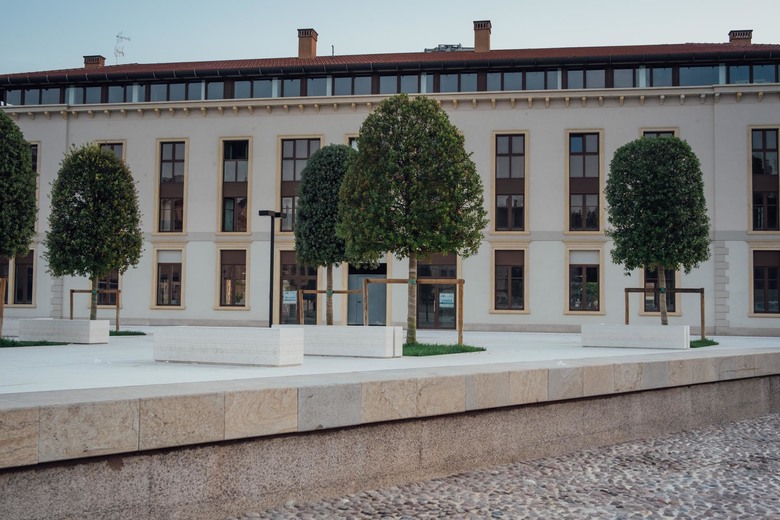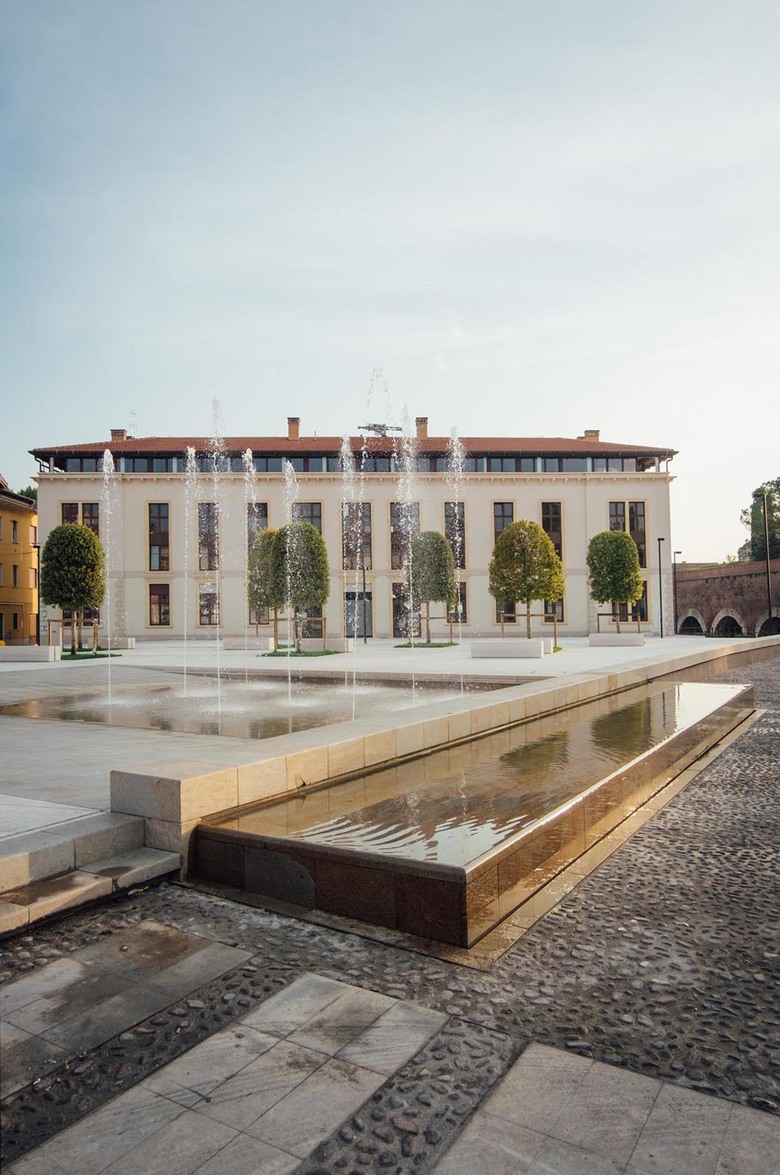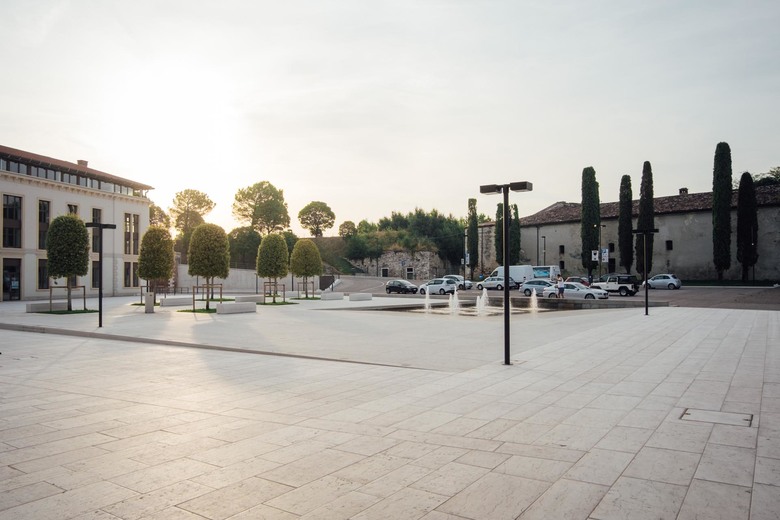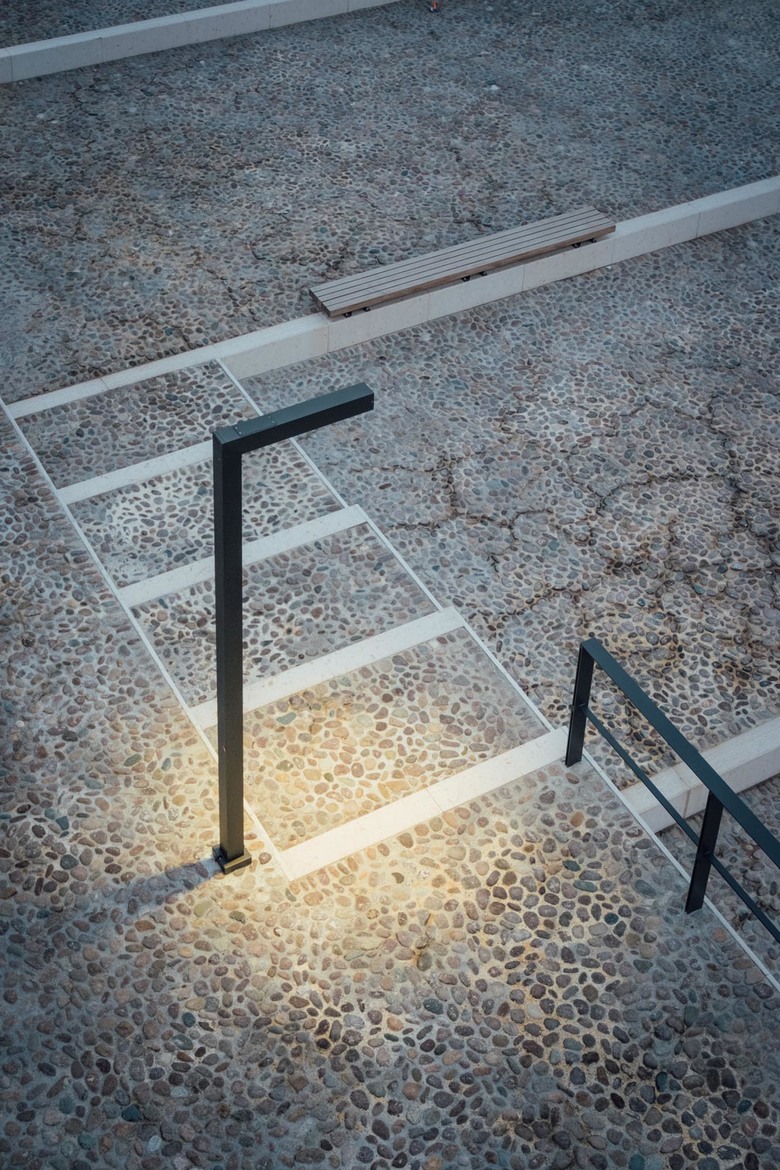Ferdinando Savoia Square
The design proposal for the re-qualification of “Piazza Fernando di Savoia”, a neglected open area entirely used for parking, located in the municipality of Peschiera del Garda (Province of Verona) received first prize amongst a total of 153 proposals for an idea competition announced in 2011.
The plaza extends for a surface of 9000 square meters within the historical fortressed city of Peschiera del Garda, such venetian walls were recently recognized for their historical significance and subsequently inserted into the UNESCO world heritage list. The plaza is the largest open space within the city’s walls and was used for the training of military troops, for this reason it claims its name as “Piazza d’Armi” (Armory Plaza).
The site, strongly characterized by the presence of a military heritage of exceptional value, required a respectful and delicate approach with the aim of restoring the hierarchy lost and reconnecting the past and the future.
The response to the functional program requirements of distinguishing a clear environment intended for at least 150 parking spaces and an environment closely connected to the residential tissue of the historical city center was resolved through the introduction of a subtle edge of stone that retraces the ancient trajectory of the 1614 dock. This trajectory line defined by trachite zovonite stone, varies along its progression; from horizontal markings on the ground it rises to form seating, it bends to allows passing, it continues to creating railings and returns indefinitely to fuse together with the paving.
The pedestrian setting that develops along the only urban front and along which all the activities of the plaza are projected, is characterized by a paving in white stone pietra della Lessinia that creates a homogenous light colored surface. Geometries of larger dimensions and various superficial elaborations of the same material were used for the external atrium of the church and the area surrounding the fountain which distinguish themselves through their difference in height in comparison to their surroundings.
The setting anciently occupied by the presence of the water of the dock is today the space dedicated to parking, it is characterized by a paving chromatically diverse. For this area of the plaza porphyry was used in a series of diverse typologies according to its use: concrete gravel and round and square cobblestones. The area then concludes with the descent towards the water though large urban stairs, therefore restrengthening the relationship between the water and the public space lost over the many years.
- 年
- 2017
- チーム
- CLAB architettura, Circlelab, Federico Signorelli
